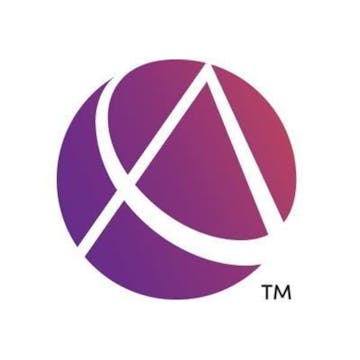
This is Course 1 in the Introduction to Blockchain course series.
Blockchain technology is in a period of exceptional growth, and the accounting profession will play a significant role in driving its adoption. Be part of the blockchain evolution with this course. Starting with a focus on the history and evolution of blockchain and bitcoin and then on to the characteristics of bitcoin, you will get a refresher on the fundamentals of money/currency and learn how bitcoin fits into the global business landscape. This course also demonstrates the unique characteristics of blockchain and bitcoin, so accounting and finance professionals...
Read more
Good to know
Save this course
Reviews summary
Blockchain basics for accounting and finance
Activities
Review Basic Accounting Principles
Show steps
Reinforce your understanding of the basics of accounting, including double-entry bookkeeping, to prepare for the complexities of blockchain accounting.
Browse courses on
Accounting Fundamentals
Show steps
-
Review textbooks or online resources on basic accounting principles.
-
Practice creating and interpreting basic financial statements.
Read 'Blockchain Revolution' by Don Tapscott and Alex Tapscott
Show steps
Gain a comprehensive overview of the history and potential of blockchain technology, laying a foundation for understanding its impact on accounting.
View
Blockchain Revolution: How the Technology...
on Amazon
Show steps
-
Read each chapter thoroughly, taking notes on key concepts.
-
Summarize the main arguments and implications for accounting.
Solve Practice Problems on Blockchain Accounting
Show steps
Strengthen your understanding of practical aspects of blockchain accounting, such as handling transactions and using smart contracts.
Show steps
-
Find online or offline practice problems related to blockchain accounting.
-
Solve the problems independently, applying the concepts learned in the course.
-
Review your solutions and identify areas for improvement.
One other activity
Expand to see all activities and additional details
Show all four activities
Develop a Blockchain Use Case for an Accounting Process
Show steps
Apply your understanding of blockchain to identify a specific accounting process within an organization and explore how it can be enhanced with blockchain.
Browse courses on
Blockchain Use Cases
Show steps
-
Research different blockchain platforms and their capabilities.
-
Identify a suitable accounting process within an organization.
-
Design a blockchain-based solution for the selected process.
-
Create a presentation or report outlining the benefits and challenges of your solution.
Review Basic Accounting Principles
Show steps
Reinforce your understanding of the basics of accounting, including double-entry bookkeeping, to prepare for the complexities of blockchain accounting.
Browse courses on
Accounting Fundamentals
Show steps
- Review textbooks or online resources on basic accounting principles.
- Practice creating and interpreting basic financial statements.
Read 'Blockchain Revolution' by Don Tapscott and Alex Tapscott
Show steps
Gain a comprehensive overview of the history and potential of blockchain technology, laying a foundation for understanding its impact on accounting.
View
Blockchain Revolution: How the Technology...
on Amazon
Show steps
- Read each chapter thoroughly, taking notes on key concepts.
- Summarize the main arguments and implications for accounting.
Solve Practice Problems on Blockchain Accounting
Show steps
Strengthen your understanding of practical aspects of blockchain accounting, such as handling transactions and using smart contracts.
Show steps
- Find online or offline practice problems related to blockchain accounting.
- Solve the problems independently, applying the concepts learned in the course.
- Review your solutions and identify areas for improvement.
Develop a Blockchain Use Case for an Accounting Process
Show steps
Apply your understanding of blockchain to identify a specific accounting process within an organization and explore how it can be enhanced with blockchain.
Browse courses on
Blockchain Use Cases
Show steps
- Research different blockchain platforms and their capabilities.
- Identify a suitable accounting process within an organization.
- Design a blockchain-based solution for the selected process.
- Create a presentation or report outlining the benefits and challenges of your solution.
Career center
Blockchain Developer
Software Engineer
Bitcoin Accountant
Cryptocurrency Analyst
Consultant
Blockchain Project Manager
Systems Analyst
Product Manager
Venture Capitalist
Data Scientist
Financial Analyst
Technical Writer
Lawyer
Economist
Investment Banker
Reading list
Share
Similar courses
OpenCourser helps millions of learners each year. People visit us to learn workspace skills, ace their exams, and nurture their curiosity.
Our extensive catalog contains over 50,000 courses and twice as many books. Browse by search, by topic, or even by career interests. We'll match you to the right resources quickly.
Find this site helpful? Tell a friend about us.
We're supported by our community of learners. When you purchase or subscribe to courses and programs or purchase books, we may earn a commission from our partners.
Your purchases help us maintain our catalog and keep our servers humming without ads.
Thank you for supporting OpenCourser.


